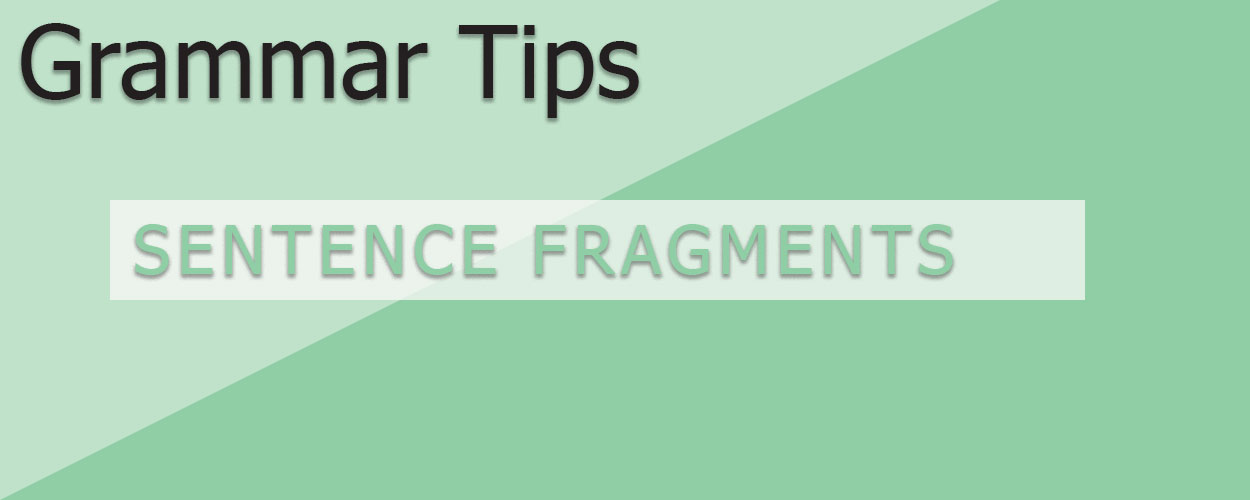

Posted: November 7, 2023
A sentence fragment is one of those rules that can (and sometimes should) be broken in fiction, though it’s notoriously hard to do well. Beginner authors who don’t know the extent of the rules often break them incorrectly, which is why you should always know the rules before anything else.
So, what is a sentence fragment? Well, first, you must know what a sentence is.
A sentence can be made of many different kinds of words: nouns, pronouns, verbs, adjectives, adverbs, prepositions, conjunctions, interjections, etc. and they can be separated into four basic structures: simple, compound, complex, and compound-complex.
In essence, though, a sentence is a word group beginning with a capital and ending with some form of punctuation. It requires a subject and a verb (e.g. the man sighs), and it should not be a subordinate clause (beginning with words such as because or who).
Sentence fragments, while sometimes used effectively, always run the risk of confusing or annoying the reader by lacking needed parts.
To test your sentences for completeness, simply search for these three things: a finite verb, a subject, and the lack of a subordinate conjunction/relative pronoun.
Finite Verbs (to grow):
Note: some languages do not require the verb to be within all sentences. English does require this.
Fragment e.g. The sunflowers growing. The garden beautiful in a few weeks.
Complete e.g. The sunflowers are growing. The garden will be beautiful in a few weeks.
Subjects:
Fragment e.g. And swim to the far side of the pond.
Complete e.g. And the ducks swim to the far side of the pond.
e.g. [You] Clean your room.
Fragment e.g. When Marco’s book was published.
Complete 1 e.g. Marco’s book was published.
Complete 2 e.g. When Marco’s book was published, he attended three book signings within the month.
e.g. Why did this happen?
e.g. Who was at the door?
Revising sentences fragments can be done one of two ways depending on the importance of the information in the fragment.
1: Rewrite as a complete sentence
Fragment e.g. Noah needed four different sources for his project. Found them all at the library.
Complete e.g. Noah needed four different sources for his project. He found them all at the library.
2: Incorporate the fragment into the appropriate main clause.
Fragment e.g. The plants came back to life. After a good watering.
Complete e.g. The plants, after a good watering, came back to life.
There is accepted use of sentence fragments within fiction, but you should be aware of usage. Like everything else, over usage, even accepted over usage, is not a good thing. Accepted use can include exclamations, questions and answers, and commands.
e.g. Oh my God!
e.g. What?
e.g. Q: Where to?
e.g. A: To Vancouver.
e.g. Go away!
e.g. Wash the dishes.
Aaron, J.E. & Morrison, A. The Little, Brown Compact Handbook, 5th Canadian ed. Pearson, 2013, chap 5
Tigerpetal Press is a small book press dedicated to publishing local authors and poets.